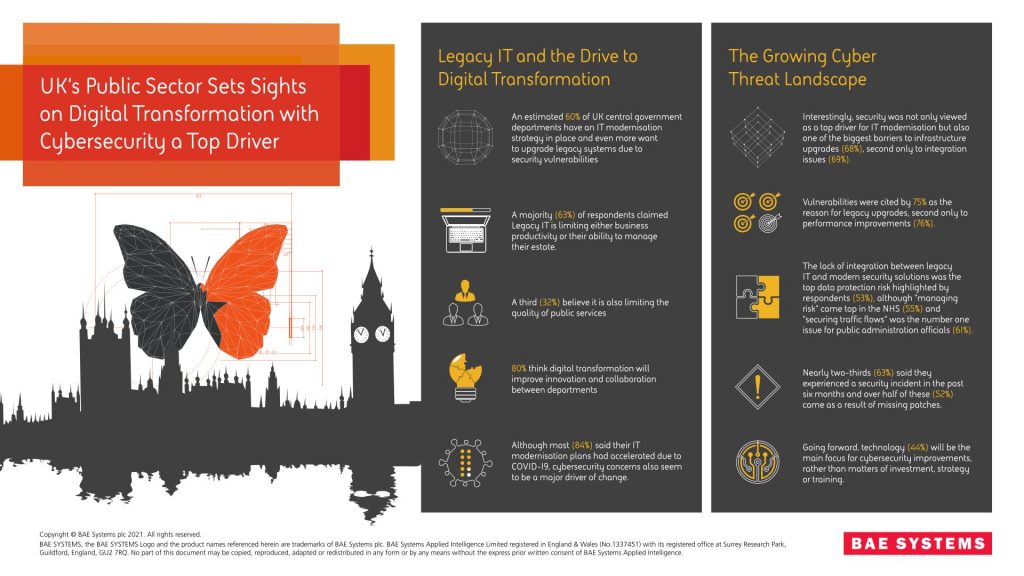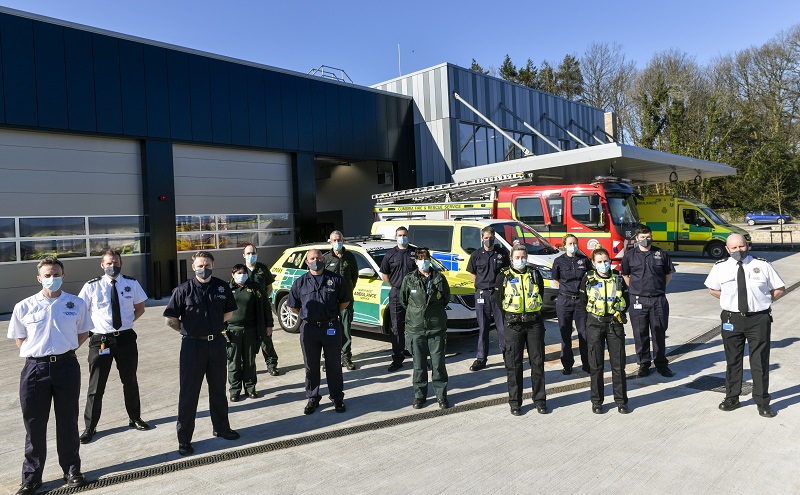|
|
 Kingston Council has outlined its work to boost the local economy as new figures reveal that the pandemic saw local unemployment almost tripled last year. Kingston Council has outlined its work to boost the local economy as new figures reveal that the pandemic saw local unemployment almost tripled last year.
A report for the council’s Response and Recovery Committee this evening shows the number of local people claiming unemployment benefits shot up from 2,115 to 6,090 in the year to November and that there was less than one job for every three jobseekers.
With Kingston’s jobless numbers expected to rise by a further 3,800 as government COVID-19 support for businesses comes to an end, the council is increasing its efforts to boost employment prospects across the borough.
The committee will look at the progress of the council’s Economic Recovery and Community Recovery Task Forces and agree future plans to help employment and skills for residents.
So far, the Economic Recovery Task Force has paid out almost £49m in COVID-19 support grants to nearly 9,000 Kingston businesses, with an additional £1.6m going to more than 350 local firms.
Teaming up with partners, including Kingston College, the taskforce has already enhanced the skills and employment prospects for young people through the launch of Work Match – a scheme which links people with available jobs – and rolled out the national Kickstart programme.
More than 400 jobs have already been set up via Kickstart, including 10 placements with council services. In addition, 16 roles have been found with Achieving for Children (AfC), the not-for-profit council-owned company that runs the borough’s Children’s Services. The company has also linked up with local schools and charities to develop around 120 more jobs across 30 different organisations in Kingston and Richmond.
The strength of partnership working throughout the pandemic is being galvanised through the Communities Recovery Task Force, with the voluntary sector taking a leading role in using their reach and contacts to help even more people access a range of opportunities.
Councillor Caroline Kerr, Leader of Kingston Council, said: “The majority of jobseekers in Kingston are looking for work in unskilled or semi-skilled roles. That’s why the excellent work the Economic Recovery and Community Recovery Task Forces are doing to link people with skills training as well as available jobs is so important.
“This is very much a team effort. The part played through these task forces by our partners in the business, education and voluntary sectors has been crucial to our early successes and will remain so as we look to rebuild our local economy for the future.”
First acts of new Government must be to establish a Wales-wide Covid inquiry – Plaid Cymru Leader Adam Price MS
Responding to Boris Johnson’s announcement that a UK wide Covid inquiry will take place in Spring 2022, Plaid Cymru Leader Adam Price MS said,
“One of the first acts of this Labour Welsh Government should be to establish an independent Welsh inquiry into its handling of the pandemic.
“Whilst Westminster is waiting until the spring of next year to even begin the work, the Welsh Government could set its own agenda and lead by example by establishing an inquiry right away whilst memories are still fresh and initial findings could be ready by as early as the start of Autumn.
“An independent Welsh inquiry, running parallel to the UK-wide enquiry, could provide a sharper focus on how well the Welsh Government responded, the efficiency of its PPE procurement and test and trace systems, and crucially how we can better protect our citizens from future pandemics.
“Covid-19 will be with us for some time yet. We cannot wait until the pandemic is over. Lessons need to be learnt now. Such an inquiry should leave no stone unturned in answering, difficult questions fully and frankly. The people of Wales – especially those directly affected by the tragic consequences of the pandemic – will expect nothing less.”
Digital transformation pushed to the top of the priority list for central Government
An estimated 60% of UK central government departments have an IT modernisation strategy in place and even more want to upgrade legacy systems due to security vulnerabilities, according to a new study from BAE Systems Applied Intelligence.
The recent research polled 250 IT managers in UK central governmental organisations to better understand their approach to cybersecurity. It found 75% were upgrading systems because of concerns about the vulnerability of legacy IT.
Public sector IT leaders are right to be concerned. Nearly two-thirds (63%) said they experienced a security incident in the past six months and over half of these (52%) came as a result of missing patches.
The lack of integration between legacy IT and modern security solutions was the top data protection risk highlighted by respondents (53%), although “managing risk” came top in the NHS (55%) and “securing traffic flows” was the number one issue for public administration officials (61%).

“One of the challenges is that security and IT departments too often work in siloes, with the former seen as the “department of no” which is slowing down the pace of digital transformation”, said Lorna Rea, Consultant for Central Government at BAE Systems. “In order for security not to be seen as a blocker to innovation, a balance must be struck to ensure public sector employees have the tools they need to collaborate and innovate, without driving up cyber risk to unmanageable levels.”
Public sector IT leaders want to start improvements by simplifying security architecture (45%), either by investing in new technologies and/or vendor consolidation. Similar numbers (45%) want to review current cyber risk management strategies to ensure they have the right balance between security and productivity.
View full report here
Stay up to date and get our latest Government Insights by subscribing at www.baesystems.com/governmentinsights
Irwin Mitchell: An extremely brief Queens Speech – but does it tell us anything new for planning/environment?
Stuart Tym, Senior Associate in the Planning Team points out to GPSJ the inconsistencies in what was announced today
Baroness Jones spoke to the BBC prior to the Speech with particular concern about the relaxation of planning laws showing a potential disregard for the renewed environmental measures. There were few surprises for planning today – but with both the Environment Bill and the Planning Bill remaining a priority there are plenty of conflicts for the government to resolve to in legislating.
The Queen opened by introducing a parliamentary term concentrating on recovery to make the UK stronger, healthier and more prosperous – “levelling up”. Stuart Tym asks “whether, in this context, do we still see planning as a public service? Will the modernisation promised include effective funding and resources for the local planning authorities at the forefront of this delivery?”
The Planning Bill remains set to come forward at pace with today’s stated aim being to modernise the system; concentrating on bringing more homes forward, particularly to purchase (but also enhancing the rights of those who rent). Stuart Tym says “This remains at odds with the Environment Bill, with the requirement to reach net zero by 2050 and introduce binding environmental targets repeated, but not necessarily sitting easily with a relaxed planning system.”
There is also a natural tension between:
- those environmental pledges and pledges to improve national infrastructure, including bus, rail and broadband (which will need to be delivered through a modernised planning system); as well as
- a further conflict (in the Neighbourhood Planning Update (released in the supporting documents last night) between the short term focus on more neighbourhood planning whilst planning in the longer term for a “modern system” which provides more housing faster.
With such a brief speech there was no direct mention of whether the zonal planning system will come forward in 2 or 3 zones, the detail of modernisation which will come forward with the consultation on the White Paper not yet settled, whether virtual committees will be legislated for, or any mention of the “use it or lose it” approach to applying Council Tax to unbuilt planning permissions for housing, all mooted in the last week.
On the latter Stuart Tym has been astonished at the naivety of the suggestion. He added: “There are too many good reasons outside of a developers control why a permitted housing scheme may stall or slow and a one size fits all tax incentive could prove disastrous for the industry. It would in any event be more likely to hit land owners and promotors not developers in any event.”
Queen’s Speech: recovery plans biased against children
National Children’s Bureau statement on the Queen’s Speech
Anna Feuchtwang, Chief Executive of the National Children’s Bureau, told GPSJ:
“Too much of the government’s policy programme outlined in the Queen’s Speech ignores children and young people. Measures to improve integration between the NHS and adult social care, boost home ownership and encourage adult education will do little to assure the next generation that they will be able to play their part in society, reach their potential or enjoy good life chances.”
“The Government assures us that the levelling up agenda applies to all those who are disadvantaged, yet the perception remains that it’s skewed towards communities in the Midlands and the North of England. With glaring levels of child poverty within communities across the length and breadth of the country, the Queen’s Speech should have done more to reassure those on low incomes that they won’t be overlooked wherever they live. We urgently need a cross-government strategy for all children, targeting all aspects of their lives, not just those in living in certain places.”
Website link: www.ncb.org.uk/
Lifetime skills guarantee welcome
Comment to GPSJ from Paramjit Uppal, CEO and Founder of AND Digital
“Introducing measures to guarantee long term skills development is critical as the digital skills gap continues to widen. It’s encouraging to see initiatives taking shape that underline the urgent necessity for cultivating tech competency in every business. The discrepancy between the number of tech jobs businesses need and the level of training held by many people can’t be ignored – prioritising skills development will charge post-COVID economic recovery and long term business success, so the introduction of a lifetime skills guarantee by the government is welcome news.”
Social Care measures promised in Queen’s speech must unleash potential of housing-with-care
Responding to today’s Queen’s Speech, Michael Voges, Executive Director of ARCO told GPSJ:
“Housing-with-care is ready to revolutionise social care if the Government follows through with today’s promised proposals on social care.
“Housing-with-care has proven over the past year that it is an “oven ready” solution to many of the challenges facing social care in the UK – providing good quality housing, care and support to older people, meeting their clearly expressed wishes for more independence whilst supporting and complementing more established forms of provision.
“Today’s Queen’s Speech promised measures on social care. It is vital that these include a clear recognition of the role that housing-with-care can play in driving a supply-side revolution based on the success of the sector during the pandemic.
“The Government must also ensure that its planning proposals support its ambitions in social care and remove the barriers holding back the growth of a world class housing-with-care sector in the UK.”
Commenting on the Queen’s speech, Richard Murray, CEO of The King’s Fund told GPSJ:
‘Despite the cruel toll of the pandemic on people using social care services and the Prime Minister’s promise to ‘fix the … crisis once and for all’, the Queen’s Speech once again stops short of a meaningful commitment to reform England’s broken social care system.
The focus on supporting the NHS to recover from the last year is welcome, but for that to succeed there must be equal focus on ensuring social care and public health services also recover, along with a long-term workforce plan that addresses staff shortages, tackles staff stress and burnout by improving working cultures and recognises the impact of the last year on staff well-being.
The Health and Care Bill signals a welcome step towards delivering integrated care centred around the needs of patients. However, once the Bill is laid before Parliament, we will be examining the details closely, particularly new powers for ministers to take control of national decisions about the NHS and intervene in decisions about changes to local services.
Conspicuous by its absence from the Queen’s Speech was any reference to a public inquiry to learn the lessons from the pandemic. Work to prepare for a full public inquiry should begin immediately to learn the lessons from the last year and ensure the country is ready to face future threats. Thousands of families mourning the deaths of loved ones will want to know that the government is doing everything it can to avoid others suffering the same fate.’
Action for Children responds to the Queen’s Speech
Director of policy and campaigns at Action for Children, Imran Hussain, told GPSJ:
“We won’t be able to ‘Build Back Better’ if the generation that will be the foundation for the future is weakened by poverty and a mental health crisis. We won’t be able to level up if life chances are pushed down by deepening inequalities exposed by the pandemic. We won’t recover as a society, unless we put all our efforts into providing greater support and investment in children. This generation of children have had their childhoods and life chances damaged and disrupted by the pandemic. So, it is disappointing to see so little detail of greater support for children in the Government’s plans. Now is the time for the government to step up and stop sweeping children’s needs under the carpet.”
Comment to GPSJ from Agata Nowakowska, AVP EMEA, Skillsoft:
“Over the past year, Coronavirus has shaken the economy from causing redundancies to disrupting careers across many sectors. For many, investment in skills support will be key to addressing both the disruption in the UK labour market, as well as the growing digital skills gap. Research from CBI revealed that businesses, government and individuals need to increase spending on adult education by £130bn by 2030 if they are to narrow the skills gap.
Last year, the government launched a Kickstart Scheme to help organisations employ young people and take on apprentices. This has been key to helping address the skills gap faced in the UK and help young people take advantage of the opportunities in the tech sector.
With digital transformation encroaching on all industries, the announcement today promising a skills “revolution” for England, with loans for adults wanting to retrain and more powers to deal with failing colleges, is very much welcomed. This is a vital step in growing the skills of tomorrow as well as supporting the UK economy to build back up after a year of turmoil.”
Queen’s speech – reaction from Subsidy Control expert to long awaited Bill announcement
Subsidy Control experts are calling on the Government to ensure its Subsidy Control Bill, (announced in today’s Queen’s speech), tackles the burden of red tape and streamlines the funding process, removing the uncertainty that currently exists for providers and recipients of public funding and which in turn will help in the recovery of the UK’s economy.
Parliament formally opened for a new session with the Queen’s speech announcing details on the Bill which will replace the previous EU framework around state aid that was temporarily transferred over to UK law after Brexit. The new framework developed under the Bill will determine how money should be distributed to businesses and projects.
Browne Jacobson government and infrastructure lawyer and Legal Director, Alex Kynoch told GPSJ:
“While the Government’s recent consultation on subsidy control has made it clear that a fuller suite of subsidy control rules is expected, it is useful to see confirmation of the new Subsidy Control Bill. The current approach of simply porting the requirements of the UK-EU Trade and Cooperation Agreement directly into UK law without the usual legislative detail has resulted in significant uncertainty for providers and recipients of public funding, slowing down funding decisions rather than streamlining them by removing ‘red tape’. More clarity is not just to be welcomed, it will be critical to the distribution of funding and support that the Government is planning to implement as part of its wider agenda. It will also enable private recipients and co-investors to proceed with a greater degree of confidence that their projects are compliant and so not open to legal challenge.
“We are encouraging Government to take this opportunity to provide clear ‘safe harbours’ setting out subsidies which will be acceptable in advance, bypassing the requirement to undertake a fresh assessment of the subsidy control principles for each project. This, combined with a greater degree of flexibility envisaged by the new regime, will give public authorities with the tools to swiftly and efficiently deploy targeted funding to support businesses and promote a stronger economic recovery.”
“Ineffective” national planning policy, which “has no teeth” is holding the industrial sector back from supporting the UK’s economic recovery from COVID-19, according to planning and development consultancy Turley.
Despite the radical reforms promised in the 2020 Planning White Paper, there is scant regard to the role of industry and logistics, in spite of the sector contributing £5.33 billion Gross Value Added (GVA) to the UK economy in 2020.
These claims come from Turley’s newly released report, ‘Playing to our industrial strengths’, which looks at the contribution of the sector and the planning challenges it faces. It includes eight recommendations to help it play a bigger role in boosting economic recovery.
Following the unexpected abandoning of the Industrial Strategy in March this year, the planning and development consultancy argues that stronger policy and guidance is needed.
Turley says the current National Planning Policy Framework (NPPF) – a 76-page document that sets out Government’s planning policies for England – includes only five paragraphs on “building a strong, competitive economy”. Meanwhile logistics, which is now recognised as an essential part of our economy following successive lockdowns, features in only one sentence in the entire NPPF publication.
Research by Turley found that the additional industrial floorspace delivered in 2020 alone supported 56,000 direct jobs on site and a further 42,000 jobs indirectly through the supply chain.
Yet despite the risk of continued rising unemployment as a result of the pandemic, the consultancy claims that the Government’s planning focus remains firmly on housing. In addition, it says that minimal consideration is given to the intrinsic link between new housing and warehousing.
Turley found that if the Government met its target of building 300,000 new homes a year, an additional 22 million sq ft of warehouse floorspace could be required each year throughout England; at the start of 2021 the supply pipeline was 32 million sq ft.
However, a lack of focus on delivering industrial space means the sector currently faces a chronic shortage of supply, especially for ‘big-box’ logistics (units larger than 100,000 sq ft), where there has been a surge in take-up following the pandemic.
Turley’s recommendations highlight that a more joined-up approach to planning for economic growth alongside infrastructure and housing is needed.
It also suggests that an ‘Industrial Delivery Test’ which mirrors the Housing Delivery Test should be introduced to ensure local authorities are held accountable for failing to deliver adequate industrial land supply.
Matthew Fox, Director at Turley, said: “The UK is at a pivotal point with the Bank of England forecasting a strong economic recovery in 2021 following the vaccine rollout and loosening of restrictions. The focus should now be on how we sustain growth beyond 2021.
“The industrial sector has the ability to play a key role in a green economic recovery but national planning policy has for too long disregarded its importance, instead focusing on the housing crisis.
“There is no denying that housing delivery is vital for the future of our society and economy, but it must be in balance with economic growth and infrastructure. Our research points towards a crisis in the supply of industrial land which could constrain the recovery.
“We hope the recommendations laid out in our report provide valuable insight for Government, combined and local authorities and economic delivery agencies, as they continue to plan for our economic recovery.”
The eight recommendations set out in the report are:
- In light of the demise of the Industrial Strategy, urge Government to adopt a joined-up approach to planning for industrial and logistics development.
- Strengthen national planning policy to support industrial and logistics growth and provide explicit guidance on how the spatial needs (e.g. for clustering) and land requirements for key sectors should be determined and delivered.
- In replacing the Duty to Co-operate, give equal status to strategic employment land as the distribution of housing needs across local authority boundaries.
- Encourage greater co-ordination of infrastructure planning with spatial frameworks for delivering local industrial strategies or their successors.
- Ensure that local plans maintain an adequate future supply of land in the right locations for all key sectors, including consideration of a Delivery Test similar to that for housing.
- Consider the wider use of the Nationally Significant Infrastructure Project (NSIP) regime for large scale industrial and logistics development, particularly a new wave of Gigafactories, and how Local Development Orders (LDOs) might give greater flexibility for industrial development not just in Freeports.
- The sector must build a stronger narrative around the economic, social and environmental contribution (particularly to net zero) it makes towards Government objectives and global challenges.
- The sector must also develop its dialogue with strategic economic bodies, combined and local authorities, and local communities to win policy backing and popular support for well-considered proposals.
 This year has already seen an increase in interest and focus on sustainability goals and reducing impacts organisations have on the environment. This year has already seen an increase in interest and focus on sustainability goals and reducing impacts organisations have on the environment.
As hot water can cost between 2 to 4 times as much as cold water, once energy costs are taken into account, it means even small steps to increase water efficiency and cut waste helps lower your water and energy costs too.
So, here’s some things to keep in mind to help reduce operating costs, reliance on mains water and decreasing water stress – plus tips on what to consider if you need to procure water – so you can progress towards green goals.
Get to know where larger savings opportunities could be
Real opportunities come through water efficiency activities and devices, which help the public sector to meet their environmental targets to reduce carbon emissions and save money.
These can include low-cost urinal controllers, sensor-controlled taps, water efficient showerheads and the savings from these – and larger measures – add up to a bigger saving.
Here’s some water-saving facts and figures:
• Sensors on urinals can reduce the number of flushes, so they aren’t doing this when no-one is at your site. You could even go for waterless urinals as a single urinal system can be as large as 9 litres, flushing at least 4 times per hour. That’s over 800 litres per day.
• A London-based university identified £50,000 of savings after taking steps to monitor its water use and reduce leaks.
Look out for water waste as small drips can add to bigger extra costs
Regular servicing and maintenance of taps, toilets and urinals – as well as any water efficiency devices you have – is also important – so you know they’re working properly and no water’s being wasted.
Carrying out site checks regularly is also worth the time. For example, a High School had a leak in a plant room at their site – losing an estimated 12,000 litres (12 cubic metres) an hour, at an estimated cost of £850 a day – caused by a copper pipe that had corroded. The leak, in the last six months, was causing some flooding in the plant room so needed quick action. Water Plus provided a quote for its repair experts to attend and complete work on-site and the leak was fixed the following day.
The installation of more than 1,100 data loggers on water meters to track use through an online portal, has been organised by water retailer Water Plus for councils, universities, businesses and other organisations since January 2019 – helping provide the extra data to drive down waste and costs. Water Plus, which is the largest retailer in the UK, has also been providing additional support and advice helping a diverse range of the public sector and other organisations.
Understand your portfolio of buildings and water use across sites
It’s important to know which buildings your organisation owns, or is responsible for, the addresses of these, how much water they use over the course of a year and whether there are devices measuring water use such as Automatic Meter Reader data loggers (AMR).
It’s worth remembering, savings from introducing water-saving devices can potentially be much more than on a new retail contract for water and wastewater on its own.
Gathering Supply point Ids (SPIDs) numbers and locating where the water meters are, if you’re able to, will also put you in a better place to see what water you use and when and where any issues may be, to protect your organisation from disruption and limit increases in future costs from leaks.
Follow the rules and requirements to make sure your organisation is compliant
Where a public sector organisation has to advertise their water procurement – and if your spend is over £25,000 then they will need to – then they can manage the tender process meeting the compliance requirements themselves, under the Public Contract Regulations 2015, or it’s much easier and less time-consuming to use a framework.
 One of the newest for the Public Sector, is Pagabo’s national utilities, water and wastewater framework, which also covers Ancillary Services such as water efficiency, leak detection and repair as well as smart metering – installing Automatic Meter Reader (AMR) data loggers, with data accessible to customers through an AMR online smart portal. One of the newest for the Public Sector, is Pagabo’s national utilities, water and wastewater framework, which also covers Ancillary Services such as water efficiency, leak detection and repair as well as smart metering – installing Automatic Meter Reader (AMR) data loggers, with data accessible to customers through an AMR online smart portal.
By using an established Public Contract Regulations compliant framework you know the legal requirements will be met for your procurement needs. And frameworks have delivered significant savings for the public sector too.
Want to know more?
Water Plus is the largest water retailer in the UK and manages the water and wastewater services for many public sector organisations, including some of the largest and most diverse in England and Scotland – from councils, schools, colleges and universities, to UK Government-owned sites, prisons, hospitals and the emergency services. Water Plus will support customers to make savings, reduce water usage and increase efficiency.
You can contact the Public Sector team direct here at bids@water-plus.co.uk, if you have any questions or need help with procurement and tenders.
The Tower School, part of Options Autism – a new provision designed to meet the needs of young people aged 11-18 with a primary diagnosis of autism – has opened in Epping, Essex. Situated in the heart of the community in what was formerly the town’s historic 1920’s Blue Star car showroom and next to its Grade II listed water tower, the building has been redesigned and refurbished to meet the specific needs of young people with autism. It has capacity to take up to 62 students referred by parents and local authorities including Essex, Havering, Redbridge, Waltham Forest and Hertfordshire.
Classes of no more than 7 young people will be staffed by specialist teachers who will deliver bespoke Key Stage 3, 4 and 5 lessons that balance academic learning alongside core life skills and employability tailored to the individual needs of each young person. Alongside the core subjects it will offer a variety of options resulting in qualifications including Entry Level, Level 1 and Level 2, GCSE and BTEC.
 Head Teacher, Kerry Linden, The Tower School, Epping Support listed in each young person’s Education, Health and Care Plan will be provided by its multi-disciplinary clinical team which will include Speech and Language Therapists, Occupational Therapists and Educational Psychologists.
Head Teacher, Kerry Linden – who has over 20 years’ experience in education and 9 years as a Head Teacher in both alternative provision and special schools – said she was thrilled to be joining the Epping community and has been delighted by the support from residents and businesses. She and the team are looking forward to experiencing all the community has to offer and supporting the development of the young people’s social, emotional and independence skills when incorporating visits within the community into the school’s curriculum.
Commenting on the new school, Kerry said, “When our learners first join the school our teachers undertake academic assessments and discrete Autism Progression Framework Assessments to identify learning priorities and measure progress in areas which fall outside the national curriculum, so they can fully understand each young person’s needs. Equipped with this and the information gathered from parents, carers, professionals and previous education provisions, we are able to create bespoke learning and wellbeing support plans for every learner to meet their needs and to support them on their personal journey.”
“The team employs positive behaviour approaches based on therapeutic parenting aimed at helping young people to understand their own behaviours and find alternative ways of managing their own actions.
“We all know that not all learning takes place in the classroom,” she said, “and at The Tower School we will be taking full advantage of the enrichment opportunities presented by our local area such as work experience, community visits, forest school and the Duke of Edinburgh Award, all of which contribute to developing the self-esteem and confidence of our young people.
“Our aim is simple – to get our young people ready for the next stage of their life long journey be that in further education or employment and to support them with the skills to become as independent as they possibly can.
“We understand just how daunting it can be for a young person, their parents and the wider family, to start a new school. We offer a nurturing environment where we build a community based on communication with all our stakeholders – our young people, our parents and the wider professionals involved in their care. The tallest towers need the strongest foundations, and young people attending The Tower School will experience a valuable combination of education, support and life skills which will provide them with those strong foundations to achieve great things.”
If you are interested in visiting The Tower School, 33 High Street, Epping, Essex, CM16 4BA, or finding out more about the support we provide, please contact: Kerry Linden, Headteacher Email: Kerry.Linden@ofgl.uk Tel: 01992 926020.
 By Evan Wienburg, CEO at Bath-based Truespeed, a full fibre infrastructure provider and ISP By Evan Wienburg, CEO at Bath-based Truespeed, a full fibre infrastructure provider and ISP
Hybrid Nirvana. It sounds like a chart-topping music album, and it is certainly top of the pops at the moment for organisations of all shapes and sizes. Working from home, aka WFH, has become the norm for huge numbers of employees this past year, so when tech disruptors like Facebook, Google and Twitter go on record to offer remote working to staff who want it, no one skips a beat. But as established industry stalwarts, from HSBC to Nationwide and Price Waterhouse Coopers, weigh in to embrace flexible working eyebrows rise – along with the growing realisation that the hybrid home/office working model is much more than a one hit wonder.
The hybrid model combines the buzz of office collaboration and team building with the convenience and productivity gains of WFH. It’s a model that works for both sides with a string of benefits including lower commuting costs and time, as well as cutting down on costly office space. And new research from the Government-backed Behavioural Insights Team (BIT) and jobs website Indeed, sounds out the advantages of offering flexible working to help level-up the UK and reduce geographic inequality by boosting opportunities in areas away from major cities and towns. The research, which analysed nearly 20 million applications, shows offering flexible working explicitly in job ads would increase applications by up to 30% and create at least 174,000 flexible jobs to the UK economy per year.
Coinciding with the Government’s aim to level up the UK and have talent able to live and work closer to home, up to 430,000 civil servants are also set to have greater choice to work more flexibly. Whitehall’s deal with serviced offices firm IWG will create a national network of hybrid offices and co-working spaces across the UK for staff to use when not in London. The creation of these hubs allows civil servants to socially interact in-person once or twice a week and also enjoy the flexibility and cost-cutting benefits of home working whilst simultaneously saving government and local council money, which could be reinvested elsewhere.
Regardless of city, town or rural location, in order to achieve this hybrid nirvana we need to ensure everyone has the digital tools and access to ultra-reliable and ultra-fast connectivity to perform at their best – whether working from home, in the office or the local coffee shop.
Even before lockdown, access to reliable broadband was regarded as a crucial part of modern life. According to a new OnePoll national survey we commissioned of 2,000 parents, 92 per cent of respondents would be ‘lost’ without the internet at home. But only a third 36% have a highly reliable home broadband connection, adding to the frustration for those who don’t. Of the two-thirds (67%) of respondents saying they need fast broadband connectivity because they work from home, 28 per cent have had to cope with video calls shuddering, freezing or even dropping out entirely, while 17 per cent have even struggled to get their broadband to cooperate when sending an email.
Currently, a fortunate 40% of homes and businesses across the UK can access a reliable, ultrafast Gigabit (1Gbps+) speed capable broadband network, but that is largely thanks to commercial deployments and upgrades in urban areas. The Government’s £5bn Project Gigabit programme wants such speeds to reach at least 85% of UK premises by the end of 2025 – aiming to get “as close to 100% as possible” by that time. The Government have also confirmed £210m for an extension of their rural Gigabit Voucher scheme and £110m to connect up to 7,000 rural GP surgeries, libraries and schools.
Project Gigabit is music to the ears of independent full fibre broadband independent providers like Truespeed – building brand new fibre optic networks to deliver ultrafast, reliable connectivity to rural and harder to reach areas as well as historic cities. But we need to increase the tempo and ramp up our efforts to bring thousands of customers into the digital fast lane. Full fibre infrastructure is an investment in the UK’s future. It’s future-proof as speeds can be increased remotely for decades to come – even up to 10Gbps. It’s the gold standard of connectivity – exactly what is required to get back on track as we recover from Covid-19.
Whether fast tracking contract tendering or signing off on rollout plans, local government has a key part to play to ensure government funding is invested where it is most needed. By working in harmony with their communities and local broadband providers to greenlight gigabit-capable infrastructure builds, local authorities will lay down the digital tracks to help boost local economies and open up employment opportunities so people are productive, happy and singing out loud – wherever their place of work.
 Fleur Sexton “Giving the next generation of our workforce an insider view of how our world works is absolute gold”
With the pandemic sabotaging so many key experiences that should be shaping young people’s lives and aspirations, work experience is one area where businesses can step up their game and provide invaluable support and inspiration to the next generation of our workforce. Coventry-based PET-Xi Training – one of the most hard-hitting and dynamic training providers in the UK with a reputation for success with the hardest to reach – is offering school pupils a whole range of remote work experience placements, from marketing to finance and graphic design, and Managing Director Fleur Sexton is urging other businesses to ‘think outside the box’ and follow suit.
“Life isn’t perfect, but understanding how to deal with imperfect situations and still succeeding is one of the most important lessons young people can learn,” said Fleur Sexton, who is also Deputy Lieutenant, West Midlands and Businesswoman of the Year. “Lockdown has put up so many barriers, and businesses may be shying away from offering work experience in such challenging circumstances. But it’s vital that we give the next generation of our workforce an insider’s view of how the career world works – let them see how businesses are keeping going in the hardest of times, how they are adapting and creating positives from difficult situations. It’s more important now than ever to show young people a ‘warts and all’ view of life.”
Businesses should look at what insight into the working world they can offer work experience students during lockdown instead of what they can’t. While traditional ‘in-person’ placements are currently not feasible, ‘remote’ placements are – and they can even offer new advantages.
For example, young people living in seaside towns with limited job prospects suddenly have a raft of opportunities opened up once work experience moves online – location is taken out of the equation. Similarly, those with physical disabilities, anxiety or who are disadvantaged in other ways may have difficulty accessing work experience via the traditional route – the playing field is levelled in many ways once it becomes virtual.
A range of remote or virtual work experience options are on offer at PET-Xi, with packages of support designed around the interests and potential career path of each pupil taking part – whether they are considering a future job in sales, training, teaching, marketing, graphic design or HR & admin. Reflecting PET-Xi’s commitment to ‘re-wiring’ communities and creating social equity, these options include:
- ‘Smashing glass ceilings’ – workshop-style sessions where students learn about the issue of certain industries not being accessible to certain kids and how these inequalities can actually be fixed with remote packages For example, a career in law is still less likely to be pursued by young people from the BAME community
- Inspiring and providing role models – pupils have the chance to ‘shadow’ workers in different jobs by joining zoom meetings and being involved ‘remotely’ in their day-to-day job. This is hugely important as missing out on seeing how other people do things is one of the biggest threats of lockdown. Having someone ‘on hand’ to answer questions and show them the kinds of challenges they may face – such as meeting tight deadlines or resolving conflict – gives young people crucial insight into what working life entails. In finance for example, pupils may ‘meet’ apprentices as well as directors who have worked their way up and have the chance to find out about their job.
- Providing networks and contacts – during these tough times it is harder to establish these vital industry links, especially for young people at the bottom of the career ladder. These sessions will give pupils practical advice on how to ‘grow’ networks and make the right contacts to help kickstart their chosen career
- Initial assessment/career wise assessment with feedback – practical steps to help students decide what careers best suit their skills and aptitudes, and what they need to do to reach their career goal
- Joining podcasts/interviews of successful business people who have smashed ceilings or who are outstanding role models for pupils to inspire and help them to aim high
- Developing interview skills – live sessions geared towards specific job roles with clear practical advice on the do’s and don’ts of interviews
- Employability support based on PET-Xi’s traineeship delivery model
- Experiential learning – project-based activity such as an evaluation of on-line delivery, what went well/even better if?
Commenting on the importance of providing work experience during the pandemic, Fleur Sexton said, “Businesses should focus on what they do best and then think outside the box to create an experience of working life that will open pupils’ minds to the opportunities available to them, demonstrate the real value of resilience and show them the skills and mindset they need to develop to work in different roles and sectors. Giving the next generation of our workforce an insider view of how our world works is absolute gold – and I am calling on all businesses to play their part in helping to shape young people’s futures.”
 By Sascha Giese, Head Geek™ at SolarWinds By Sascha Giese, Head Geek™ at SolarWinds
As our cities continue to grow in population density, the need for positive environmental action on a domestic and global scale grows more urgent. However, the sheer complexity of contemporary urban living means city planners need more actionable insight into the factors affecting issues such as air quality and emission levels. They need to understand—with precision and in real time—what’s changing about their local environment, where the risks and dangers lie, and what steps they can take to mitigate them.
The collective lockdown experiences of the past 12 months illustrate the potential for significant change. As reported recently in Chemistry World, the coronavirus pandemic resulted in a 7% drop in global carbon emissions, a trend not seen “since World War II.” Granted, these have been exceptional circumstances, but they do offer a real-world benchmark and increase the urgency behind more permanent methods of environmental improvement, such as investment in smart cities.
The Rapid Rise in Smart Cities
Smart cities are built around interconnected networks of fixed and mobile remote sensors designed to record and exchange data 24/7. From an environmental perspective, this data is used for a wide variety of purposes, including identifying underlying patterns and trends across the city ecosystem. Take the movement of traffic, for instance, where real time information about the number and location of vehicles can help authorities make accurate predictions about key issues such as air quality.
Momentum is growing—in London, the mayor recently announced an air quality monitoring investment of almost £1.5 million to fund 195 sensors, which will generate real-time data shared publicly via the Breathe London website.
Armed with this kind of data-driven insight, authorities can take proactive steps to maintain air quality. For example, public transportation vehicles can be switched to an all-electric mode when they’re entering areas of higher pollution. Indeed, some cities are using the data in public information messages to encourage people in vehicles or on foot to find alternative routes when air quality decreases.
Complexity on an Enterprise Scale
This isn’t without its challenges, however. The sheer volume of data—plus the complexity of the many interconnected networks involved—gives UK government IT system administrators the monumental task of managing not just the sensors but their underlying systems.
Think of it this way: a highly connected smart city is like a large enterprise—it generates huge quantities of data needing to be stored and analysed. As such, this data has the potential to become an extremely valuable asset, but the sheer level of complexity involved means artificial intelligence technologies are now essential tools for city administrators, who need to extract and cross-reference insights from the different data sets involved. Addressing these challenges already generates huge levels of investment across a range of business sectors and will become increasingly important as smart cities grow further in scale.
The parallels between smart city technology management and business infrastructure don’t end there. Smart city administrators can apply the same expertise, tools, and processes to manage these requirements as those used by their commercial counterparts. By prioritising real-time monitoring for network performance, security, and data privacy, they can keep smart cities connected, safe, and in a position to deliver better environmental performance to their citizens.
With greater data volumes and complexity comes the issue of compliance. Businesses everywhere are increasingly aware of their regulatory obligations, and the impact of rules such as UK-GDPR means it’s increasingly the administrators who shoulder the responsibility for data integrity and protection. Admins working in smart cities not only have a responsibility to secure the growing amounts of data but must also ensure they and their third-party partners don’t misuse it.
With the world facing extreme environmental challenges, governments are beginning to set more ambitious targets, and their ability to meet the huge range of challenges head-on will be helped considerably if smart cities can fulfill their green potential and curb the damage they cause. Technology teams have a huge role to play, and their expertise will be in high demand as smart cities continue to develop in the years to come.
 Knowsley Council has appointed Jenny Rollinson as Assistant Executive Director – Adult Social Care. Knowsley Council has appointed Jenny Rollinson as Assistant Executive Director – Adult Social Care.
Jenny has worked at the Council for almost four years, and is currently the Head of Adult Social Care.
Over the last 15 years Jenny has held a number of senior Health and Social Care roles working for both Stockport and Oldham Council before joining Knowsley in 2017.
Jenny has experience of managing front line operational teams and leading Adult Social Care services through transformational change.
Jenny has a successful track record of improving performance and implementing change and will build on the improvements she has made in Adult Social Care and on her experience of leading, directing and co-ordinating the Council’s Adult Social Care functions in the role of Assistant Executive Director – Adult Social Care.
Speaking about her new appointment, Jenny told GPSJ: “Having worked in Knowsley now for almost four years, I’m really passionate and committed to providing the very best care to our residents.
“I look forward to working at a strategic level, with staff, partners, residents and other stakeholders to ensure our services and the support we offer meets people’s needs and improves people’s outcomes.
“We have made fantastic improvements here in Knowsley with a range of initiatives and service developments intended to maximise people’s independence and help people to stay at home for as long as possible. This has included harnessing community assets, increasing the use of assistive technology, and embedding an asset based approach to assessment. We have also worked in partnership with our local health colleagues to prevent avoidable hospital admissions and facilitate timely discharge from hospital with support where it is needed.
“Throughout the pandemic, our residents have needed us more than ever and I know that the vital support and services we provide is needed and valued by our communities.
“I look forward to taking up my post and driving forward Adult Social Care services in Knowsley.”
Jenny will take up her new role shortly (and once she has returned from her maternity leave).
- Occupational health & disabled services provider distributes technology to 200 assessors
- NuroKor bioelectric technology will help support disabled people as they start work
- Microlink staff with health conditions successfully trial NuroKor therapy
Microlink PC, a global leader in education and assistive technology solutions, is offering cutting-edge technology from NuroKor BioElectronics to 200 disability assessors, in a bid to reduce absenteeism and help disabled people back to work.
 NuroKor founder and CEO, Rick Rowan The assessors support an estimated 70,000 disabled graduate students and employees annually through Government grant schemes, to enable them to continue with their studies or employment. From May 2021, Microlink will be extending the solution to the employment work programmes, to help unemployed people with health conditions and disabilities, as part of the UK’s pledge to get an additional one million disabled people back to work by 2027.
Operating across eight countries, NuroKor develops and produces state-of-the-art, wearable technology using bioelectric nerve, muscle and microcurrent stimulation to manage pain and recovery and optimise physical performance.
Multi-award winning Microlink decided to partner with the technology pioneer after loaning its mibody devices to a selection of its 100-strong workforce. As well as seeing a reduction in sick leave and an increase in productivity, after regularly using the technology for six weeks, one member of staff with painful arthritis was able to stop using a wheelchair and crutches, return to cycling 70 miles a week and stop taking strong, opioid painkillers.
 Scott Hurst, Microlink Facilities manager Scott, 43, from Southampton, said: “Before trying the device, my arthritis was so bad that I would have to use crutches or a wheelchair to move around at work. The pain stopped me cycling to the office, walking and even going shopping, so it really impacted my life. After 4-6 weeks of using it, I could get back on my bike and life’s a lot easier now.”
Microlink UK CEO Dr Nassar Siabi, OBE, claims the technology could revolutionise treatment of musculoskeletal conditions among the UK’s workforce and significantly help to reduce the high rates of absenteeism due to pain and discomfort.
He said: “I invested in devices for team members who were struggling with debilitating health conditions. The results were overwhelmingly positive and the next step is to share the technology with those supporting people with disabilities and health conditions, so that people who wish to return to work, could benefit.”
Currently the only life science company of its kind, NuroKor’s technology is distributed across the UK, Norway, France, US, Australia, New Zealand, Malaysia and Ireland and will this year be expanding its US market reach.
NuroKor founder and CEO Rick Rowan said: “We know how pain can significantly impact on a person’s quality of life, so I am delighted that our technology will be used to help support Microlink’s users back into employment, as well as providing them with more control over their own care.”
And as more remote workers experience posture-related pain, the technology looks set to be an alternative solution for organisations wanting to better support their workforce and cut condition-related absence and sickness. [1]
 Microlink UK CEO, Dr Nassar Siabi OBE Dr Siabi added: “We now have millions of people working from home and we want to help reduce the rising numbers of people experiencing pain caused by bad posture. Staff need to have an ergonomic workstation to reduce discomfort and need access to emerging technology such as NuroKor’s, then you stop work-induced pain from developing into a permanent problem.
“Organisations will need to be more proactive in the care of their remote workforces because this is how millions of us now work.”
Hampshire-based Microlink will also introduce the technology to around more than 40 health and safety leads from its client base, which includes some of the UK’s leading banks, broadcast companies, law firms, councils and pharmaceutical companies. Its workplace adjustment programme currently supports the disabled employees of organisations with a combined workforce of more than 1.4 million across the UK and internationally.
Dr Siabi said: “By introducing this type of technology, I believe that the majority of long-term absenteeism, which is caused by pain related conditions, could be avoided. Forward-thinking companies can then ensure their workforce remains safe from work-related injuries.”
For further information please visit: nurokor.com
The National Care Forum (NCF) has created a new partnership with The Institute of Health and Social Care Management (IHSCM) for the benefit of its members.
Members of the NCF will be able to enjoy the full membership offer from the IHSCM which includes:
- A full programme of events and support for conferences
- Accredited short course masterclasses
- Reports and expert analysis on key topics
- Special interest groups
Increased professional support for those working in social care has never been more important. The membership bodies explain that at this challenging time within the social care sector, organisations involved in planning, delivering and supporting health and care need exceptional managers who use consistently good management practices. There is great demand for those who can work in partnership with staff and patients to drive the change agenda.
Jon Wilks, Chief Executive at the IHSCM comments, “We’re excited to join forces with NCF because together our support for leaders and managers across both the health and social care sectors is much stronger.”
Vic Rayner, Chief Executive at NCF adds, “This innovative partnership with IHSCM affirms NCF’s commitment to the importance of developing leadership and management skills in the social care sector and through IHSCM’s network and resources provides a substantial new benefit for existing and future NCF members.”
ExtraMed, which provides patient flow software to NHS trusts, has been acquired by smart health tech provider Alcidion Group in a move that will provide an enhanced offering to hospitals and associated primary and social care organisations.
Smart health technology provider Alcidion Group has today announced the strategic acquisition of ExtraMed, a UK company which specialises in providing NHS trusts with software that helps frontline staff make informed decisions based on real-time visibility of patient flow.
Alcidion, which already works with more than 40 hospitals across the UK through its Miya product suite, which includes the electronic observations module Patientrack, will now be a leader in the UK health tech market for patient flow and command centre communications, following the acquisition.
ExtraMed currently has 9 customers in the NHS, including involvement as a partner in a 10-year Digital Control Centre project at Salford Royal NHS Foundation Trust – part of the Northern Care Alliance NHS Group.
In the immediate instance the companies will maintain business as usual, but a combination of shared knowledge across the organisations is expected to quickly lead to enhanced offerings for existing and new customers across the NHS. New opportunities are expected for customers around integration, automation, clinical decision support, resource management, patient observation and clinical communication.
Lynette Ousby, UK general manager for Alcidion, said: “Bringing ExtraMed and its team of experts in patient flow into the Alcidion Group is a fantastic opportunity to further enhance how we work with hospitals across the UK. The combination of our capabilities and our expanding partner network opens up exciting possibilities as we continue to grow our offering to help NHS hospitals and integrated care systems that want to advance digital maturity by complementing and orchestrating their existing systems.
“Existing ExtraMed customers will benefit from the knowledge and experience we have in developing and delivering technological systems that improve patient care, while current Alcidion customers may take advantage of the digital expertise ExtraMed has in patient flow, in ensuring that each patient gets to the right bed at the right time.
Susan Say, managing director of ExtraMed, said: “All of our customers will continue to receive the same high standard of service as our team joins the wider Alcidion family. The Alcidion Group is a perfect fit for ExtraMed, as we join a clinically driven organisation with a strong history grounded in patient safety and digital innovation. We look forward to expanding what we can do for our existing customers and other hospitals in the NHS as well as strengthening our bond with the Northern Care Alliance.”
Under the agreement Alcidion will purchase 100% of the shares in ExtraMed, a wholly-owned subsidiary of bedside communication and entertainment unit provider Hospedia. All staff, customers and assets are included in the acquisition agreement.
Kate Quirke, Managing Director of the Alcidion Group said, “This acquisition significantly strengthens our position in the UK and signifies our commitment to this very important market. We are delighted to welcome the ExtraMed customers and the highly experienced ExtraMed team as we continue to transform the delivery of healthcare with smart technology solutions.
“In combining our customer bases and the established solutions alongside Miya Precision, we are creating a strong competitive advantage and the opportunity for further growth as we look to introduce our Miya product range to these new customers. The combination of our technologies, staff and customers establishes Alcidion as the UK market leader for patient flow and command centre communications.”
 The Prime Minister opened Cabinet by thanking those involved in sending an aid support package, which included a number of oxygen concentrators and ventilators, to India to assist their work in tackling coronavirus. The first shipment arrived in the country today. The Prime Minister opened Cabinet by thanking those involved in sending an aid support package, which included a number of oxygen concentrators and ventilators, to India to assist their work in tackling coronavirus. The first shipment arrived in the country today.
The Prime Minister said he was proud the UK has been able to help and that this sort of action – along with delivery of core government commitments – is what the public want their government to focus on.
The Prime Minister then moved onto a discussion on the forthcoming Queen’s Speech; the focus of which will be to demonstrate how we will build back better from the pandemic and fulfil our pledge to unite and level up the country. The PM thanked Cabinet colleagues and their departments for their ongoing support in getting the content of the Speech ready for May 11th.
The Prime Minister highlighted that departments are being asked to take part in a savings and efficiency review ahead of the Spending Review later this year. The purpose is to learn the lessons from the last year in how we can run services more efficiently and ensure that we focus our high levels of spending on our key priorities. This is a standard part of the Spending Review process.
Cabinet then received an update from the Northern Ireland Secretary on the programme of events planned to mark the Centenary year. Cabinet agreed that there is so much the UK has gained from Northern Ireland and that it has gained from being part of our Union, and how in the last 100 years, Northern Ireland has contributed significantly to the rich fabric of the UK’s cultural life and will continue to into the future.
The PM invited the COP President to update Cabinet on the work that is being undertaken to ensure COP delivers on the government’s desire to increase international ambition to tackle climate change ahead of the summit in November. The PM highlighted that tackling climate change remains our number one international priority and that this will be achieved in a way that benefits the UK public, creating sustainable, high wage jobs for years to come.
Cabinet concluded with an update on the pandemic. The PM re-iterated that the data continues to look good but warned that we are not out of the woods yet as variants of concern continue to pose a threat. The PM said that while the road ahead looks positive, there will still be challenges and this Government will continue to take tough decisions where necessary to protect both lives and livelihoods.
 Finding resilient fostering families for some of the most vulnerable children in care in the West Midlands is the focus of a new venture – ‘The Big Fostering Partnership’ – formed by local councils, including Staffordshire County Council and Dudley Metropolitan Borough Council, the National Fostering Group and Big Issue Invest, the social investment arm of The Big Issue Group. Coming together to pool resources and expertise, The Big Fostering Partnership will help secure long-term, nurturing foster carers for children between the ages of seven and sixteen who currently live in children’s homes. Finding resilient fostering families for some of the most vulnerable children in care in the West Midlands is the focus of a new venture – ‘The Big Fostering Partnership’ – formed by local councils, including Staffordshire County Council and Dudley Metropolitan Borough Council, the National Fostering Group and Big Issue Invest, the social investment arm of The Big Issue Group. Coming together to pool resources and expertise, The Big Fostering Partnership will help secure long-term, nurturing foster carers for children between the ages of seven and sixteen who currently live in children’s homes.
Many of the young people will have lived in a number of different places before living in a children’s home and may have experienced trauma and therefore struggle to form relationships.
By securing resilient foster families, with the right skills, experience and support, the partnership will help young people to reach their full potential.
Once a young person has been identified, the partnership will use its national network of carers to find potential foster families.
Although launching in the West Midlands, The Big Fostering Partnership are already talking with other authorities from across the country who are interested in joining the partnership.
Helen Riley, Deputy Chief Executive and Director for Families and Communities at Staffordshire County Council, the lead Council said: “We have built up a wonderful network of foster carers who can provide stable homes for the majority of children who come into our care. However, we do have a need for more specialist foster families who can support those children with additional needs through the most challenging periods of their lives. This partnership provides another option to help us meet the needs of the children in our care. Research shows that the stability of a family environment can help children to reach their full potential in later life. And, whilst residential care is absolutely the right place for some children, we also know that for others a foster family will better meet their needs now and into the future. Working with our partners allows us to share our strengths and experiences to help get these children into the right family as quickly as possible. Having access to a larger pool of foster carers means we can often match a young person with a family, where we have previously been unable to in the past.”
Sergio Sanchez, Investment Manager, Big Issue Invest, said: “We are really excited to be involved in this partnership, which focuses on improving the lives of children by providing them with stable high-quality family-based placements. The partnership is the culmination of many months of collaboration and is based on a ‘child-first’ outcomes-led approach. We are especially pleased to see that the children selected for our pilot project continue to be cared for in nurturing fostering families.”
Richard Woodward, Director of Strategy, National Fostering Group, said: “We are proud to be the founding delivery partner to The Big Fostering Partnership. It’s been fantastic to work in such a collaborative way, drawing on each organisation’s experience and strengths to develop this innovative approach. Having already, in its pilot phase, managed to support young people to move into nurturing fostering families, we are excited for all that we will achieve together for young people in care, in the months and years to come.
“One of the first young people who moved to a foster family during our pilot phase has said that ‘It’s really good. More relaxed than where I was before and I have more freedom. Our relationship is like a mother and son – ‘I feel at home’”
The Big Fostering Partnership is part funded by the Department of Culture, Media & Sport’s Life Chances Fund.
To find out more about becoming a foster carer for The Big Fostering Partnership please visit www.bigfosteringpartnership.co.uk or call 0330 0229135
 Cecilia Routledge, Global Head of E-Mobility for vehicle charging specialist CTEK 2021 is the year for the EV charging infrastructure to shape up
By Cecilia Routledge, Global Head of E-Mobility for vehicle charging specialist CTEK
The Government has committed to phase out new petrol and diesel cars and vans by 2030, 10 years earlier than originally planned. This is a key step on the ‘road to zero’ for net zero emissions in the UK by 2050. And, as the number of rechargeable vehicles on Britain’s roads increases, the need for a robust, extensive charging network becomes ever more critical – not only to meet the needs of today’s electric cars, but also because the availability of public charging stations is a key driver for motorists considering making the switch to electric.
Research from UK think tank Policy Exchange reveals that, by 2030, the UK is likely to need around 400,000 public charge points, meaning that charge points need to be installed five times faster than the current rate. So 2021 really is the year when the EV charging infrastructure needs to start shaping up.
Cecilia Routledge, Global Head of E-Mobility for vehicle charging specialist CTEK, gives her views on the trends that will shape the growth of the UK charging infrastructure in 2021.
- Government funding and incentives will drive expansion. In line with the Government’s vision to have one of the best electric vehicle infrastructure networks in the world, their 10 point plan for a green industrial revolution published last November has committed £1.3 billion to accelerate infrastructure roll out with a focus on rapid charge points for motorways and major roads, as well as more on-street charge points near homes and workplaces, in a bid to make electric vehicle charging as easy as refuelling a petrol or diesel vehicle. This includes £20m of funding committed to the On-Street Residential Grant Scheme for 2021/21, which offers local authorities 75% of the capital costs to procure and install on-street charging points.
- Charging infrastructure will become a ‘must have’ for new builds and refurbs. Charging infrastructure will increasingly be front of mind for urban developers and architects during the planning process. To support the current and future take up of electric vehicles, action is needed now to make buildings e-fit for the future, and a Government consultation is underway on proposals to make charging points mandatory for all new builds.
For non-residential buildings, the Government’s proposals for mandatory EV charging points go further to also cover buildings under refurbishment and, longer term (by 2025), existing non-residential buildings, too.
- Smart charging will come to the fore. As the number of vehicles requiring charge increases, focus will turn to the impact this may have on the National Grid, especially as CTEK’s research reveals most people plug in when they get home from work, when there is already peak demand for electricity.
 CTEK Chargestorm Connected 2, EV charging point There is a Government consultation underway proposing that all EV charge points sold or installed in the UK must have smart charging functionality included. Smart charging, which is incorporated into CTEK’s Chargestorm® Connected 2 charging points as standard, allows users to plug in and set their vehicles to charge during off-peak hours, when there may be cheaper tariffs and lots of clean, renewable electricity generation available too.
- Continued debate on the charging infrastructure. We can expect further debate on the charging infrastructure, everything from payment standards to smart charging, to transmission capacity and load balancing. The market is also under review by the Competition and Markets Authority, whose study on the charging sector is looking to establish how investment can be encouraged, while also making sure this fast-growing sector works well for UK drivers.
The future of sustainable transport lies with rechargeable vehicles, and we expect 2021 to be the year when charging infrastructure is at the forefront of development to support the Government’s drive to phase out petrol and diesel vehicles.
CTEK is the leading global brand in battery care and power management and, with over 10 year’s experience in EV charging technologies. CTEK’s E-mobility solutions are available globally. Products range from individual EV charge points for home charging to larger corporate and commercial installations with multiple charging stations, load balancing and seamless integration with monitoring and payment equipment.
Contact details: www.ctekemobility.com
 The emergency services outside Cumbria’s new Blue Light Hub A new Blue Light emergency services hub to better serve the local community has opened in Cumbria.
The multi-million pound Furness Peninsular Blue Light Hub brings services together under one roof for the first time in the south of the county.
Cumbria County Council has delivered the combined facility to home the county’s Fire and Rescue Service, Police and North West Ambulance Service.
Cllr Janet Willis, Cumbria County Council Cabinet member for Fire and Rescue, said: “I’m absolutely thrilled to see the completion of this fantastic new facility which will benefit the local community.
“Working together under one roof will provide even greater opportunities for collaboration with our blue light partners and will also deliver significant savings to the public purse.”
Cllr David E. Southward, MBE, Cumbria County Council Cabinet member for Economic Development and Property, said: “This new building provides a range of facilities for the Fire and Rescue Service, including the fire house where firefighters can train in a smoke-filled environment.
“This facility hasn’t been available in South Cumbria previously, so firefighters had to travel to Penrith to the closest fire training facility. This improvement creates greater training opportunities in the area and reduces travel time for staff.”
The hub includes:
- Fire house and tower training facility
- Road traffic collision area for training scenarios
- Appliance bay accommodating two fire engines and one ambulance
- Operational facilities such as breathing apparatus workshop, drying room for fire fighters’ PPE and equipment storage
- Office accommodation for Cumbria Fire and Rescue Service, Cumbria Police and NWAS.
- Conference/meeting room facilities
A video to mark the opening of the Furness Peninsular Blue Light Hub can be watched here: www.youtube.com/watch?v=yY7naqxXbmI
John Beard, Cumbria County Council’s Chief Fire Officer, said: “The Furness Peninsular Blue Light Hub provides much improved facilities for our staff in the Ulverston area. The building is also ideally located next to the A590 main road in Furness, which will help to maintain a rapid response to emergency incidents. We’re looking forward to working alongside our blue light partners and maximising opportunities for even closer collaboration.”
Superintendent for South Cumbria Matt Pearman said: “When the emergency services and other partner agencies work together the whole community benefits. The new hub will see experienced police officers working alongside colleagues from Cumbria Fire and Rescue, North West Ambulance Service, Cumbria County Council and others.
 Cumbria County Council’s Furness Peninsular Blue Light Hub “This will result in all agencies having a greater understanding of what is going on in the community and an enhanced ability to tackle the issues most important to the public.”
Roger Jones, NWAS Head of Service for Cumbria and Lancashire, said: “This is a much-needed step to upgrade the facilities at Ulverston and ultimately this new location should improve our response times to the public.
“There are many advantages to working so closely with our blue light and local authority partners, while the investment also delivers better value for money. The new station provides adequate space for current emergency and patient transport vehicles, and I’m sure our staff are excited to be working from a fresh, modern building.”
Caddick Construction was the main contractor for the new building.
Derek Billows, Contracts Manager at Caddick Construction, said: “This has been an exciting project for the team to deliver. The co-located emergency response centre will be a collaborative base from which the vital emergency services can provide an efficient response service and support for local residents. This successful project has further strengthened Caddick Construction’s commitment to the Cumbria region and its supply chain.”
Fire and Rescue Service staff have moved into the new hub, which replaces the old Ulverston fire station.
It is hoped an open day will be held for the local community when it is safe to do so.
Cumbria County Council secured £4.9m from the Department for Communities and Local Government’s Fire Transformation Fund for the project.
The new hub building links to an access road from the A590 to Ulverston’s Beehive Business Park, home to a number of national retail outlets.
The county council delivered the access road scheme, which unlocked employment land for development, on behalf of Cumbria Local Enterprise Partnership.
Eric Wright Construction Ltd constructed the new road and signalised junction.
Leaders launch digital exclusion taskforce to help Londoners get better connectivity, acquire digital skills and access devices
LGfL to provide 200,000 low-cost laptops for schools
28% of children in state funded-education are disadvantaged
The attainment gap between disadvantaged children and their more affluent counterparts currently stands at 18 months and is growing fast
“Closing the digital divide in London is crucial if we are to stem the widening 18 month attainment gap between disadvantaged pupils and their affluent counterparts”, said John Jackson, CEO, EdTech charity, LGfL – who recently joined the Mayor of London and London Councils as part of Sadiq Khan’s Digital Exclusion Task Force whose mission is to #BridgeTheDivide. LGfL will be providing schools with devices for their pupils and working with them to recondition older devices. It will also be working to secure a wireless connectivity deal with a major mobile network.
Research conducted by the Sutton Trust and Teacher Tapp shows only 10 per cent of schools across the country reported all their pupils have a laptop – only a marginal increase from last March (seven per cent) (1). Meanwhile, Ofcom estimates that between 1.14 million and 1.78 million UK children (nine per cent) lack access to a laptop, desktop or tablet at home – and more than 880,000 live in a household with only a mobile internet connection (2).
To date, LGfL has provided 100,000 devices for schools across the country during the first lockdown and has recently ordered 100,000 more. However, fully meeting the demand remains a huge challenge, not least some equipment takes several weeks to arrive from the supplier.
Councils in London are currently assessing the need in their areas, with some reporting as many as 8,000 pupils still lack devices, even taking into account those which have already been ordered.
“LGfL has massive purchasing power as it buys on behalf of thousands of schools which delivers economies of scale saving schools millions of pounds ”, said John Jackson. “Affordability is key”, he said – a comment echoed by Benjamin Kennor, Assistant Headteacher, St Fidelis RC Primary School in Erith, London Borough of Bexley, in this video, who was able to purchase a further 40 devices for the same price that he was going to pay with another supplier.
LGfL has complemented the rollout off new devices with the recycling of old computers. Over 30,000 licences have been given to schools which enable them to turn old laptops into fully functioning Chromebooks within minutes.
Schools are also benefiting from HomeProtect, a web filtering solution, designed to safeguard children accessing the internet at home which has been made available for free for six months.
LGfL will also be launching a low cost, unlimited SIM card for children , to enable affordable access in the home for families and children who may not have access to broadband at home.
“We are delighted to support the Mayor’s taskforce, a critical development which will join up incredibly important work on digital inclusion across public, private and charitable sectors at a time of national emergency”, said John.
Local authority car park management boosted by touchless solution
APT Skidata, the UK’s leading parking solutions business, has launched Path, an innovative parking solution that enables local authorities and operators to manage parking across multiple environments through a single ecosystem, with access to real-time user data.
Path is an app-based solution that allows car park owners and operators to simplify the parking ecosystem management and give their customers a consistent parking experience, as well as supporting a touchless parking environment.
 The standard set-up of Path allows registered users to store their payment and vehicle details and set up ‘autopay’ for quick payment and fast entry/exit without having to touch a machine at any Path-enabled car park. It also provides customers with full visibility of their parking activity. The standard set-up of Path allows registered users to store their payment and vehicle details and set up ‘autopay’ for quick payment and fast entry/exit without having to touch a machine at any Path-enabled car park. It also provides customers with full visibility of their parking activity.
Path offers a new parking experience for all types of car parks including shopping malls, town centres, airports, hotels, hospitals as well as destinations and resorts. APT Skidata has taken a modular approach to building Path which means that it can be tailored to meet the specific needs of all these environments whether the set-up is ticketed, ticketless, barriered, or barrierless, using ANPR. It can also accommodate staff parking, corporate accounts, reservations, VIP drop off zones – all in one single app.
Car park owners and operators can use other Path modules such as ‘Pay Now’ for ticket systems which allows customers to use the Path app as a mobile pay station simply by entering their licence plate details and scanning their ticket. They can also use the ‘Permits’ module which allows users to purchase monthly, quarterly or yearly parking passes, removing costly administration from the car park operator.
Car park owners and operators can adopt the Path app as their own with a branding module that allows them to use their own logo, images and colour scheme. For those car parks looking to enhance customer loyalty, Path is a means of getting straight to a registered parker with ‘push’ notifications to offer things like free parking sessions, all day parking for a fixed fee, or other incentives to return.
Derek McClean, Head of Product at APT Skidata, says the Path app can provide local authorities and operators with the complete parking solution: “We are taking our knowledge and expertise of the parking ecosystem to develop digital solutions that meet the needs of our customers – the car park owners and operators – as well as in response to the changing expectations of car parking customers who want a more seamless parking experience.
“Path simplifies the transactional side of parking and gives parkers a payment solution in their pocket. It also helps to reduce the total cost of ownership of parking as it reduces the reliance on having so many pay stations.
“Drivers make many journeys and car park operators may have many car parks,” says Derek, “but there is one Path to support all of them.”
Regardless of the car parks connected on the network, Path provides real-time user data, which can help to provide invaluable insight into car park usage.
Derek says that development work on the app continues and new features and modules will be added in due course.
|
NEED AN UP TO DATE DATABASE? 
|
 Kingston Council has outlined its work to boost the local economy as new figures reveal that the pandemic saw local unemployment almost tripled last year.
Kingston Council has outlined its work to boost the local economy as new figures reveal that the pandemic saw local unemployment almost tripled last year.




 This year has already seen an increase in interest and focus on sustainability goals and reducing impacts organisations have on the environment.
This year has already seen an increase in interest and focus on sustainability goals and reducing impacts organisations have on the environment.
 One of the newest for the Public Sector, is Pagabo’s national utilities, water and wastewater framework
One of the newest for the Public Sector, is Pagabo’s national utilities, water and wastewater framework
 By Evan Wienburg, CEO at Bath-based Truespeed, a full fibre infrastructure provider and ISP
By Evan Wienburg, CEO at Bath-based Truespeed, a full fibre infrastructure provider and ISP
 By Sascha Giese, Head Geek™ at
By Sascha Giese, Head Geek™ at  Knowsley Council has appointed Jenny Rollinson as Assistant Executive Director – Adult Social Care.
Knowsley Council has appointed Jenny Rollinson as Assistant Executive Director – Adult Social Care.


 The Prime Minister opened Cabinet by thanking those involved in sending an aid support package, which included a number of oxygen concentrators and ventilators, to India to assist their work in tackling coronavirus. The first shipment arrived in the country today.
The Prime Minister opened Cabinet by thanking those involved in sending an aid support package, which included a number of oxygen concentrators and ventilators, to India to assist their work in tackling coronavirus. The first shipment arrived in the country today. Finding resilient fostering families for some of the most vulnerable children in care in the West Midlands is the focus of a new venture – ‘The Big Fostering Partnership’ – formed by local councils, including Staffordshire County Council and Dudley Metropolitan Borough Council, the
Finding resilient fostering families for some of the most vulnerable children in care in the West Midlands is the focus of a new venture – ‘The Big Fostering Partnership’ – formed by local councils, including Staffordshire County Council and Dudley Metropolitan Borough Council, the 










Recent Comments